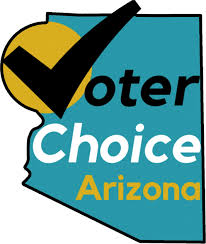Bob Robb is Wrong about Open Primary
I sometimes agree with Arizona Republic conservative columnist Bobb Robb. On the issue of the open primary model, I do not.
I got so fired up that I sent in a response. I know. That sounds like something somebody’s grandfather would do.
Anyway, I’m not sure if they will publish it, so I figured I’d share it.
Oh yeah. He’s wrong about open primaries and ranked choice voting. So there.
Republic columnist Robert Robb advocated for a “top-two” or “open” primary system of voting in his column on January 31st.
Unfortunately, the open primary system cannot single-handedly “cure the distortion of disproportionate influence” of the two-party system, as Robb hopes.
There are two ingredients that are necessary to find that cure: ranked choice voting, and an increased number of truly competitive legislative and congressional districts.
First, without a greater number of truly competitive congressional and legislative districts nothing really changes. A competitive district is one in which the party registration is within 5-6% of the two major parties where either party could win a seat in any given election.
24 out of 30 legislative districts in Arizona are widely dominated by one of the two political parties. Your vote does not count after the primary election.
Even with a open primary system, these districts would see no change.
The candidates would simply use their parties’ infrastructure and voter lists to shut out independent voices.
How do we know this? Just look at city council races. We all know the party registration of candidates for city council or mayor. We know that their political parties spend millions to get them elected, even if their party name is not on the ballot.
Plus, under open primary schemes, we would still have to pay for the primary and run-off elections.
Thus, the second ingredient necessary for the cure: ranked choice voting, or RCV.
RCV is a system that allows you to rank candidates in the order you prefer them. It is used in 20 cities in the United States, and the states of Alaska and Maine. Alaska just passed a hybrid of ranked choice and open primary that Mr. Robb suggests because they understood that ranked choice is the key to that particular reform.
Notably, in a ranked choice race, the candidates hurt themselves if they attack other candidates. Candidates have to appeal to all voters and ask them for their second choice vote, even if they won’t give them their first choice vote.
Further, RCV is also known as an “instant runoff election” because it will decide the election in one round. This saves millions of taxpayer dollars and reduces the length of campaign season.
Mr. Robb’s hopes are laudable. But if he hopes to see a re-balancing of the American electoral system, the best way is through RCV and truly competitive districts.
You can learn more at Voter Choice Arizona. If you want to try RCV yourself, check out this website.


